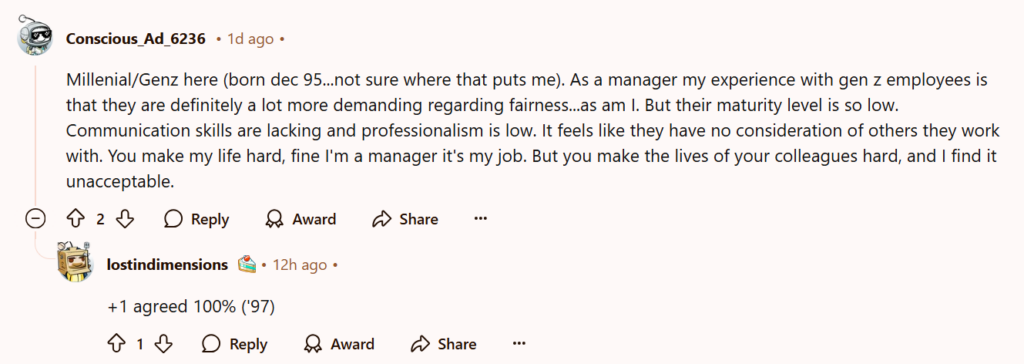They announce, not ask, when they want an off from office. They are comfortable slaying their salary over stress. GenZ has its corporate protocols and priorities clear.
Generation Z, a term representing people born around late-1990s and the early 2010s, is rebelliously rewriting the current definitions for what an employee and an employer mean. For Gen Z employees, work is only a part of their life and not its kernel. They’re willing to work hard and do overtime – if it’s backed with a commensurate pay; they detest micro-managing that gets in the way of their ‘me-time’; and their mental health concerns are more important than their KRAs.

A few recent incidents have opened wide discussion on their unorthodox work ethic, getting both praised and bashed by people. Recently, an X-user named Siddharth Shah shared a picture of how one of his Gen Z team members applied for a work leave. The screenshot invited a lot of comments, many of which sided with the team member’s unapologetic method for getting an off. Krishna Mohan, another manager who faced a similar situation with his one Gen Z employee, commented sharing his experience in the same thread:

The latter’s comment appeared to side more with the employee, explaining that mental health concerns must be taken seriously by companies, and approving such offs is better than having your employees burnt-out and depressed. The work, many said, can run along with the other things in an employee’s life.
Indeed, They Are Rebels With A Cause
It is beyond decent doubt that Gen Z workers are shifting the orthodox and largely-toxic work culture in significant ways for good. They are outright about establishing boundaries for a good work-life balance, correcting seniors if their conduct goes off-track, and demand transparency and accountability from their bosses. They place great emphasis on company values, and ensure that their emotional and mental well-being is not a trade-off for keeping their jobs. If things don’t work in alignment with them, they don’t flinch before tendering their resignation and jumping ship to another company that remunerates them duly. They also openly take to social media platforms for sounding their complaints and concerns to an active online community – this has a huge practical impact as at times, it even leads to the redressal of their issues due to mounting online pressure.

This is indeed a welcome change because largely speaking, the older, Millennial employees who entered work before them weren’t as vocal and assertive. One reason for this is the kind of socio-economic situation they grew up in, coupled with the unsaid social values and protocols they were raised with as children and observed around them. Today, the economy has diversified greatly, access to the internet has changed the nature of work, and our social values are different – we value straightforwardness and comfortably call out disrespect. It’s also true that unlike their older colleagues, they don’t need to struggle for arranging for the key essentials of life, such as food and shelter. They are therefore addressing the next-level issues that need our long-overdue attention.
Their uninhibited behaviour does create a point of friction with their managers, who usually come from the Millennial group. They are perceived as entitled, unruly, lacking professional ethics, and being selectively-committed to their work. However, they also bring in a new set of technical skills, sharpness and global awareness that contributes positively to their output.
The Solution Is Collaboration And Adaptation



Gen Z employees are heralding a wave of corporate change that shouldn’t be suppressed. Instead, companies must strive to listen to their legitimate demands and apprehensions. This will foster a better corporate culture, boost performance, and enhance output. Older seniors can welcome more openness in their work approach, while Gen Zs can imbibe the values of patience and perseverance from them. In multigenerational teams, this can be only way forward, with a constructive and non-confrontational exchange being the norm than an exception.

















